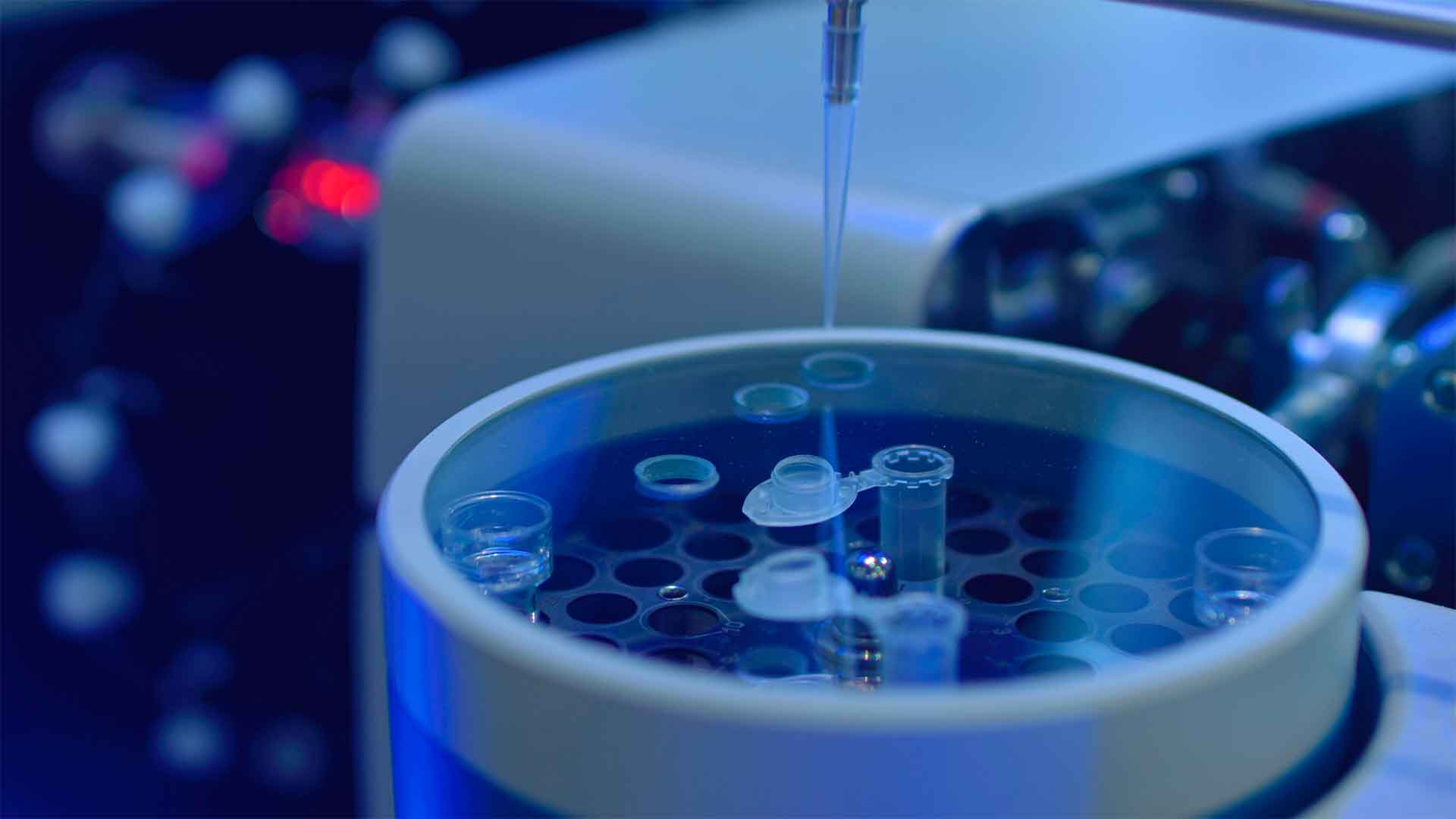- Sectors
- Aerospace & Defense
- Big science
- Fintech
- Insights

The pharmaceutical development process is long and costly, taking between ten and fifteen years from the start of research until the product is on the market. However, few actually reach this final stage. In fact, only one in five thousand drugs in development actually reaches this stage. This reality not only implies a significant risk of failure, but also represents a major obstacle to medical and social progress.
In the current context of constant search for efficiency, companies are continuously exploring new ways to improve their processes, and one of the most recent is through Artificial Intelligence, specifically Generative AI (GAI).
This technology, represented by ChatGPT as one of its best known examples, focuses on systems capable of generating new data from existing data, whether in the form of text, images, sound or other formats, using models such as generative adversarial networks (GANs), diffusion models or generative pretrained transformers (GPTs).
IAG is especially valuable when synthesizing new data from observed data, as these models can process and learn from large volumes of information, identifying patterns and connections that would be difficult, if not impossible, for humans to detect.
This ability to extract and learn from patterns in the observed data to generate new examples is what makes IAG a valuable tool for complex research fields such as biomedicine or biotechnology.
Currently, projects are being carried out that take advantage of the analytical capacity of Generative Artificial Intelligence in biomolecular data, identifying the processes and factors that cause or influence the development of a disease. This approach makes it possible to discover the mechanisms, pathways and proteins involved in the disease in order to find possible therapeutic targets. This line of work opens the door to the design of new drugs and the development of more precise and personalized treatments.
In addition to identification, IAG can also generate and optimize sequences of proteins, peptides and other small molecules that could act as drugs on previously identified therapeutic targets. By adjusting the molecular structure and composition, it is possible to design them to bind more effectively to proteins, producing a more potent therapeutic effect with fewer side effects.
However, once the drug is designed, it is still crucial to follow conventional processes to ensure its safety. However, Generative Artificial Intelligence can also speed up these processes by helping to predict the safety and efficacy that potential drugs will have before clinical trials begin.
The final phase of the process, which consists of several stages of implementation, is the longest and usually lasts between six and eight years. In this phase, IAG can also be of great help. By using large data sets collected from previous clinical trials, it can identify best practices and optimize trial protocols, such as determining the optimal dose of a drug, identifying the best methods for measuring outcomes and optimizing trial duration.
The implementation of Artificial Intelligence is transforming medical research, taking it to a new dimension. In addition to facilitating the creation of new drugs and significantly reducing the associated time, cost and risk, Artificial Intelligence will enable significant advances in areas such as diagnosis and early detection, personalized treatments, telemedicine and virtual assistants, among others. Medical care will evolve from a reactive approach to a more predictive and preventive one, providing a more effective individualized service focused on the needs of each patient.
Artificial Intelligence is a great promise that began to take shape in the 20th century, and the last few years have seen its capacity for development, turning that dream into reality.
In the field of biomedicine, companies such as ARQUIMEA are investigating the hidden potential of AGI through its research center, ARQUIMEA Research Center. This research ranges from the development of new medicines to improving the safety and efficacy of autonomous systems. The wave of Artificial Intelligence can no longer be stopped, and those who manage to master its advance will be shaping the future of social progress.
Find out more about the Artificial Intelligence projects being developed at the center.